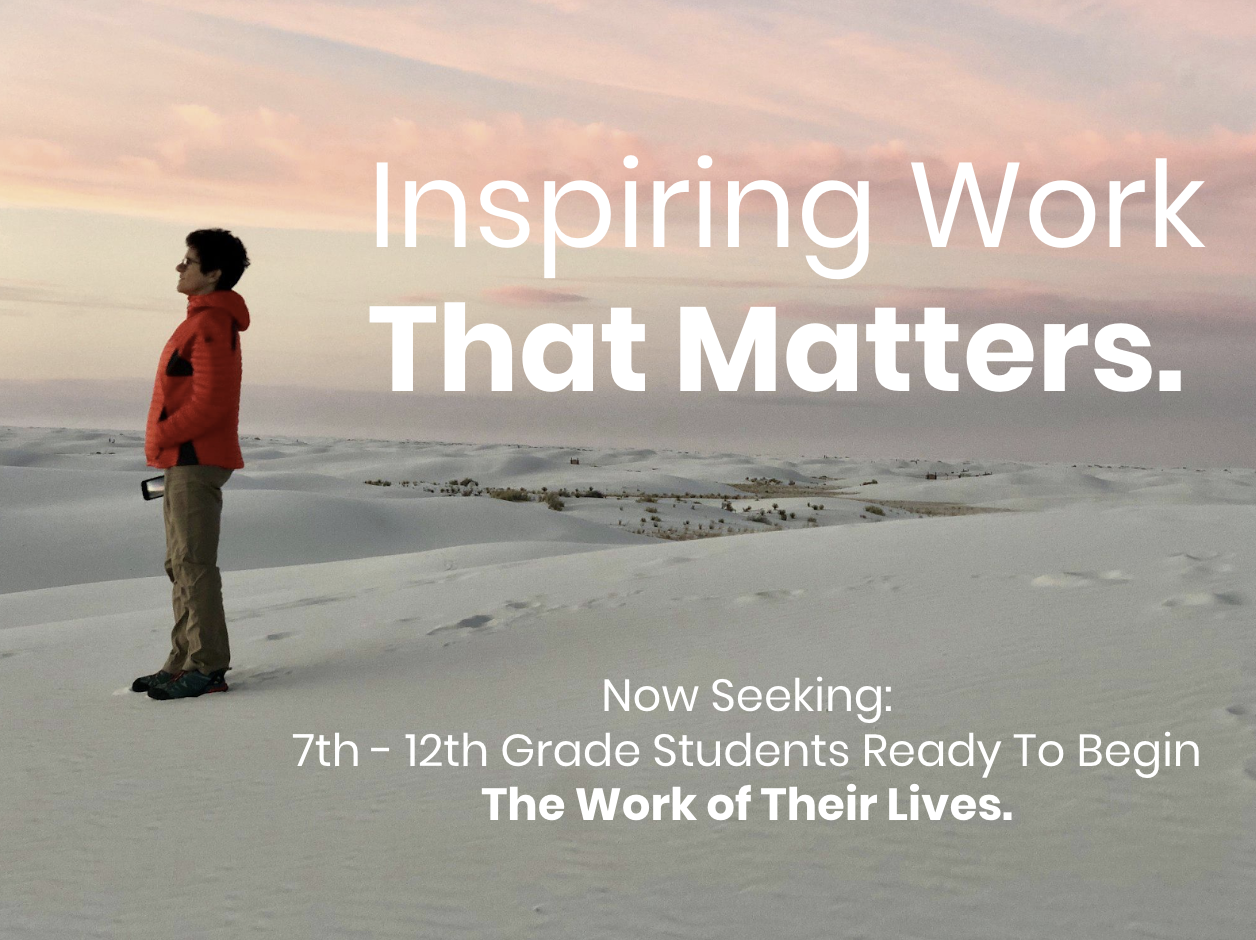A Different Kind of Resolution
For years now, I’ve found myself returning to this George Saunders quote which first appeared in O Magazine:
The scariest thought in the world is that someday I'll wake up and realize I've been sleepwalking through my life: underappreciating the people I love, making the same hurtful mistakes over and over, a slave to neuroses, fear, and the habitual.
The quote seems to find me whenever I’m feeling something like stress or uncertainty in my life; whenever it does so I find myself in that wonderful position – that position which great art often puts us in – of feeling both inspired and implicated. Inspired by the idea that there is a richer presence that I can bring to my life – with practice and with intention. Implicated by that which is so obvious: that time is moving so quickly, that I’m doing so little to ensure that I’m here for all of it, that I’m sleepwalking through so much of this life.
I first read it about 15 years ago, in an era of my life when I paid particular attention to trends in productivity. I was a hardworking and occasionally overwhelmed teacher grappling with the never-ceasing volume of “stuff” coming at me, I happened to believe that personal technology would save us from all of that stuff, would help us organize and enhance our work lives, would allow us to live better and richer and more peaceful lives. I was one of the first people at my school to purchase the first-gen iPad (which was the size of a road sign) and I tried as hard as I could to do literally everything on it. Since, I’ve purchased half a dozen iPads of a variety of sizes, and maybe ten computers, and more iPhones than I care to count, and yet for all of that investment of money and time I’m not sure I can point to any evidence which supports the thesis that personal technology has saved anything important about my life whatsoever.
I do have more alerts and more notifications than I did before. I don’t believe I have any better time.
In fact, what I feel more than anything is that more is being demanded of my attention than ever, and because it is my attention feels more fragmented and disjointed than it ever has. This is, of course, an issue facing all schools and facing all students – how we save our students from the relentless economy of distraction, from tools which are designed only to take our students away from themselves – but so too is it an issue facing each of us. And as our attention becomes more commodifiable, it becomes more urgent that we engage deeply the question of what it is that our attention is for and what it is worth.
Over Winter Break, I had the great pleasure of finally reading Jenny Odell’s How To Do Nothing: Resisting the Attention Economy, and I was particularly struck by this quote:
In the short term, distractions can keep us from doing the things we want to do. In the longer term, however, they can accumulate and keep us from living the lives we want to live, or, even worse, undermine our capacities for reflection and self-regulation, making it harder, in the words of Harry Frankfurt, to “want what we want to want.” Thus there are deep ethical implications lurking here for freedom, wellbeing, and even the integrity of the self.”
Put slightly differently, they lead us only to a kind of terrible sleepwalk through life.
I’m an inveterate list-maker and goal-setter and because I am I happen to love the turn of a new year, but recently on Slack (!) I shared with my colleagues that I’m unsure how to express what it is that I’m feeling for this specific set of resolutions for this specific new year. There are, of course, the usual ones – exercise more, eat better, something something duolingo – but as I write this and/also resist the terrible urge to check my phone, it feels most necessary to do that which is most abstract: invest more of that currency in those things and those people which matter most.
Which, I suspect, may be difficult in 2024. My sense is that we may be heading into a year which will be challenging for all of us – for our students, for ourselves. My sense is also that it is at those times when we feel our most uncertain and most unseen that our attention also happens to be its most vulnerable. Which, of course, begs the questions: “What are we all to do?” Later in How To Do Nothing, Odell describes a new kind of position for each of us to consider as we experience life within an era which lurches from one crisis to crisis – a position in which we choose “to participate, but not as asked.”
Which, as we head toward a year which could be a challenging one, feels like the best kind of resolution imaginable. To participate – with thought, and with intention, and with purpose.
But perhaps not as asked.
Mike Simpson, Head of School
See also: 7 Ways Running is Like Problem-Based Learning; What Mike Simpson Can’t Work Without;
